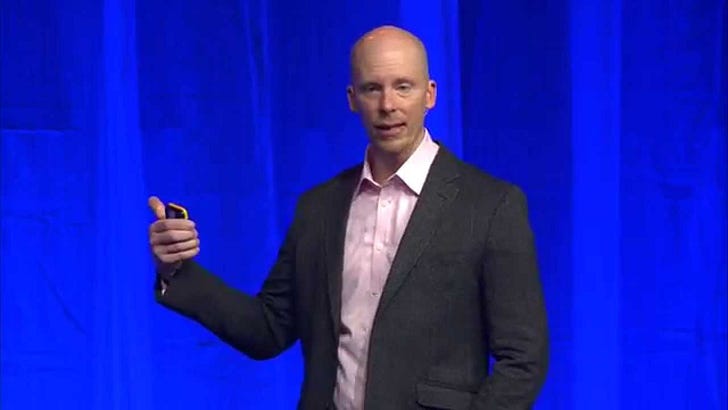- Alejandro's Eclectic Newsletter
- Posts
- Start finishing, the competitive advantage in learning about other roles, system design explains the world
Start finishing, the competitive advantage in learning about other roles, system design explains the world
Hey folks,
Since the beginning of March, I've been focusing on establishing a writing habit and a creative process. A minimum of four pomodoro—around 2 hours—for writing and coming up with ideas almost every day.
As a teenager, I wrote stories and poems regularly, and then I stopped at one point. These last weeks, in a way, feel like reigniting an old passion.
I'm still trying to figure out how writing fits in the grand scheme of things and if it's viable, but for now, it's one of my small bets.
Stop starting, start finishing
Antipattern: Start Starting
The more cars on the road, the slower they go.
The more work that is in progress concurrently, the longer the time to learning and value.
Pattern: Stop starting, start finishing
Limit work in progress to minimise time to learning and value.#BVSSH
— Jonathan Smart (@jonsmart)
Mar 6, 2023
This pattern or mantra has been one of my favourites since forever. It’s so common to see companies doing the opposite. They always want to do more work, to add more priorities to the pile and have everyone working concurrently at all times. Maximum utilization for the win. They forget that when everything is a priority, nothing is a priority.
The same way we tend to think that expanding highways or building more roads will reduce traffic—it doesn’t— we think that doing more at the same time will make us more productive. It’s the mindset of maximizing utilization.
Having more work in progress will slow our ability to learn quickly. It will make our feedback loops longer. Not only that, we’re creating a constraint, a blocker, in our flow of work. Things get added upstream faster than our ability to finish them.

By working on fewer things, as counter-intuitive as it seems, we’ll be faster overall and get more stuff done. Of course, this not only applies to the team, since in most cases, they don’t get to decide what to work on. We have to extend our focus to the entire stream: clear strategy, fewer and more important priorities and goals. Less is more.
The competitive advantage in learning about other roles
I found myself agreeing so much with this post today. While I haven’t got that sweet unfair advantage yet, learning about other disciplines has given me a more holistic view, an understanding of how things tie together and more empathy for my peers in other roles.
The post also resonated with me because I always have an internal fight between breadth vs depth of knowledge, generalization vs specialization. I consider myself more of a generalist and, as of late, I’ve come to value the power of being a generalist that specializes in some areas. It’s what’s commonly described as a T-shaped, Comb-shaped, V-shaped or whatever other shape that implies you have broad shallow knowledge in many areas (enough to be dangerous) and some areas where you might be a bit of an expert.
In fact, I believe that learning about other disciplines and different topics is a key ability nowadays and in the future. I see that to innovate in the current world, we have to connect many seemingly disjointed ideas in creative ways, and be able to collaborate cross-functionally. In the world I’m describing, having people that can connect the dots and access multidisciplinary knowledge is crucial.
I’m not advocating for the eradication of specialists. We need both roles collaborating to be successful, people that can connect the dots, and people with deep expertise.
Interestingly, specialization can change. I might be a specialist in JavaScript now, but maybe in five years the market will change, and I’ll be coding in Rust. It’s a bit of “Strong Opinions, Weakly Held” kind of thing. It also implies there’s a growth mindset.
System design explains the world
This is a marvellous article about system design, how important it is and also undervalued:
Systems design is knowing when a distributed system is or isn't appropriate, not just knowing how to build one. It's repairing the incentives in a political system, not just getting elected and passing your favourite laws.
It’s specially relevant to me now because, recently, there was news about a train crash in Greece. I read that the accident was caused by “human error” and that everyone and their grandma were “taking responsibility” by resigning, and that the government blamed the station master.
Saying things are caused by human error is the easy way out. What I’m saying might sound ridiculous, after all, we all make mistakes every day, we’re human, and we have to be able to make people accountable, but hear me out. We humans live in systems:
A system is an interconnected set of elements that is coherently organized in a way that achieves something.
A system is more than the sum of its parts. It may exhibit adaptive, dynamic, goal-seeking, self-preserving- and sometimes evolutionary behavior.
Human error is always bound to happen, it’s in our nature. In a situation, any random person—you and me—can make the same error given enough time. Rather than looking at the individual and blaming them, look at the system that allowed that error to happen. What are the incentives of the system, its goals and rules, its feedback loops, etc.? Seeing things with a systemic lens will help us account for human error, blaming the individual or resigning won’t.
Off-topic
This masterpiece of a song plays in many of my workouts. Nothing like listening to it while doing some heavy weights to feel like one of the 300 for a couple of minutes.

Join the conversation